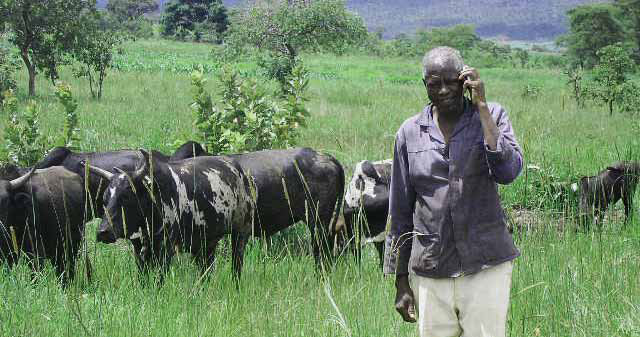
It was in 1994 that the Telecommunications Act gave rise to what was at the time dubbed the Communications Authority of Zambia. While it was mandated to regulate and monitor almost every aspect of the country’s telecommunication sector, the Authority was somewhat hampered by the restrictiveness of the Telecommunications Act, which did not give it the power to regulate competition amongst telecoms operators, provide cyber security regulations or even regulate the postal sector.
This situation would remain the same until 2009, when the passing of three Acts, the Postal Services, the Electronic Communications and Transactions (ECT) and the Information and Communications Technologies (ICT) Act numbers 22, 21 and 15 of 2009 respectively, brought about monumental changes to the sector as whole. The events of 2009 also saw the Communications Authority of Zambia renamed the Zambia Information and Communications Technology Authority (ZICTA).
“The fundamental idea behind the passing of the three Acts in 2009, and the rebranding of ZICTA,” explains Director General, Margaret K Chalwe-Mudenda, “was to broaden the Authority’s scope of work to encompass all elements of ICT, ECT and the postal sector.”
Today, ZICTA’s strategic goals include promoting competition within the market, being the catalyst for delivering universal access, being the source of protection for consumers, ensuring that operators, and the nation at large, efficiently manage scarce resources and that ZICTA itself continues to enhance its own capacity to deliver what it is mandated to do.
“As a result of the Acts that were passed in 2009, and the subsequent efforts that have been made by those within ZICTA,” Chalwe-Mudenda continues, “what we are in 2013 is a more empowered body that possesses greater powers to regulate the sector, to penalise and prosecute those that abuse their positions and monopoly power, and to negotiate, mentor and arbitrate.”
When the Authority began life back in 1994, it is estimated that there were less than 100,000 mobile and telephone subscribers present in Zambia. The near two decades that followed have played host to a myriad of major developments that mean that as of today the country has three mobile operators, one fixed-line service provide and approximately 18 registered Internet Service Providers (ISP’s) operating within its borders.
“Our most recent mobile data,” Chalwe-Mudenda states, “suggest that there are over ten million registered SIM cards today in Zambia, a figure which we believe equates to a mobile penetration rate of around 55 percent in a country of almost 13.5 million people. Nevertheless, with internet penetration still as low as two percent, the country is clearly still very much in a phase of gradual growth.”
One of ZICTA’s most important undertakings came in 2010 when it released an extensive Cost of Service Study, the results of which brought about a landmark shift in how tariffs were regulated in Zambia. “In the lead up to 2010,” Chalwe-Mudenda says, “we brought in an independent consultant to conduct a highly detailed study focusing on the tariff rates that operators were charging consumers for voice services for the telecommunications market as a whole.”
What this consultant found was a clear trend that saw operators setting prices at a much higher rate than they could rightly justify. “Based on the results we received,” Chalwe-Mudenda reveals, “we were able to use the powers we have as set in law to introduce a proposed range of pricing options for the operators, while also installing a price cap which no tariff can exceed.”
The result of these actions soon became clear, with the cost of making a call dropping dramatically. This in turn meant that owning a cell-phone was no longer seen as a luxury afforded only by the privileged few. Perhaps just as importantly it also helped spur real competition in the marketplace with rival operators battling to offer the cheapest call rates and the most attractive promotions to entice subscribers.
In addition to discussing the work of ZICTA, Chalwe-Mudenda also takes the time to highlight the importance of the Authority’s membership status with The Communications Regulators’ Association of Southern Africa (CRASA). “The creation of CRASA really helped us as regulators by giving us a forum in which we could come together and share common experiences and resolve issues such as cross border roaming. We see CRASA as being a neat family of industry bodies who are working to remove the barriers between countries and make things better for the region as a whole from a communications perspective.”
To a great many people, Africa represents the next frontier for business and economic prosperity and this is a statement that Chalwe-Mudenda very much agrees with. “The continent of Africa to this day retains a great deal of unexploited value and potential, potential that we can capitalise on if we all work together to ensure that no sector or regulator is left behind. When it comes to Zambia specifically, what we are working on is developing a scenario where the ICT industry can reach a point where it is one of the top contributors to this country’s GDP and a leading source of employment, technological progress and innovation. While there will always be things that we can’t predict, I can personally see a lot of progress being made here and it makes me excited that there are lots of good things to come in the future.”
Written by Will Daynes, research by David Brogan



 ZICTA-Africa.Telecoms-Apr13-Bro-s.pdf
ZICTA-Africa.Telecoms-Apr13-Bro-s.pdf









